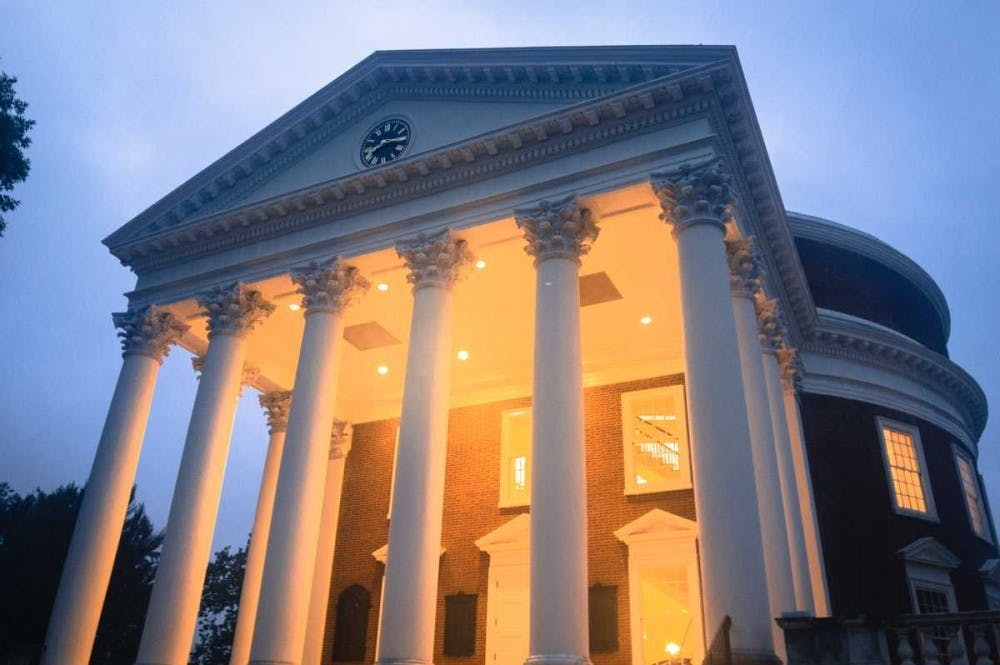Both the Minority Rights Coalition and the Jewish Leadership Council at the University issued statements on Facebook Friday stating that the MRC will reconsider potential membership status for the JLC as a voting member of the MRC board. The JLC was originally denied full membership and voting status as an organization of the MRC after the board voted against membership for the JLC Feb. 25.
According to the MRC’s statement, the JLC was denied membership due to concerns from students within the MRC relating to the Hoos for Israel CIO — one of five student organizations under the leadership of the JLC. The other organizations under JLC’s leadership are the Jewish Social Connection, the Jewish Education Initiative, the Jewish Religious Life Council and the Jewish Social Justice Council.
“Many students under the MRC umbrella believed at the time that HFI operated in a way which made these students feel concerned and unsettled,” the MRC statement reads. “These concerns impacted the votes of MRC organizations on Feb. 25, because a vote to include JLC would also make HFI a MRC constituent organization.”
The initial decision by the MRC to reject the JLC’s request came just three days after a pro-Palestine protest interrupted an event hosted by the Brody Jewish Center and Hoos for Israel at Clark Hall Feb. 22. Neither the MRC or the JLC have said the decision to reject membership status for the JLC was related to the demonstration.
However, the JLC’s statement adds that the organization acknowledges the complicated nature of the Israel-Palestine conflict.
“We recognize that the Israel-Palestine Conflict is complicated and heavily debated, and that it carries the weight of lived experiences and deep set emotions for many individuals - both in the Jewish community and in the communities represented in the MRC,” the JLC statement reads. “We deeply understand the need for dialogue surrounding this complex issue, but at the same time we cannot and will not apologize for our right to support a Jewish homeland.”
According to the MRC’s statement, the JLC originally submitted a request Nov. 11, 2017 to join the MRC as a voting member of its board. However — due to structural changes to the MRC’s constitution during this past November, December and January — the JLC’s request was not considered until Feb. 4 because the MRC was not accepting new member organizations during the restructuring process.
After a meeting between JLC and MRC members Feb. 18, members of the MRC spent a week discussing the merits of accepting the JLC as a member and ultimately voted to reject the request Feb. 25. According to the MRC’s statement, all eight organizations which currently make up the MRC’s board would have to approve the JLC’s — or any organization’s — request for membership to be accepted, although it did not state which organizations voted for or against the JLC’s request.
However, the MRC board proposed two alternative solutions to the JLC’s request which the MRC unanimously approved, but the JLC rejected. The first would have allowed for one of JLC’s member organizations to become a full, voting member of the MRC, while the second would have established a communicative, collaborative partnership between the MRC and JLC but not grant the organization full membership status.
“While these compromises could have been beneficial to both JLC and the MRC, neither granted the Jewish community the respect extended to other minority populations,” the JLC statement reads.
According to the JLC’s statement, the organization’s request for MRC membership was originally prompted by an increase in anti-Semitism across the country and the events of Aug. 11 and 12 at the University and in the Charlottesville community. On Aug. 11, white nationalists held a torch-lit march through Grounds and were heard chanting, “Jews will not replace us.”
“We felt that not having representation within the MRC meant missing far too much of the conversation and opportunities for community-building at the University, and wanted to be part of a group that embraces diversity and advocates for minority students,” the JLC’s statement reads.
“This whole process has been imperfect,” the statement adds. “There should have been more dialogue, more time for Q&A, and more opportunities to reach out to specific organizations and have one-on-one conversations.The process was flawed, and though we can’t change that, we can move forward.”





